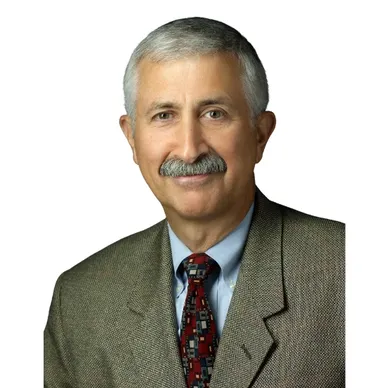A healthy athlete is a strong athlete, and athletic longevity requires a long life. To achieve our athletic longevity goals, almost all of us resort to the optimistic usage of pills and powders.
One of the major bummers for the older athlete, is that no one knows how to make people younger. All we can do is slow down the rate of aging. The healthier we are, the slower we age….meaning the more slowly we progress toward that visit to the pearly gates.
How can we balance risk and reward, prioritize which interventions to pursue first, how to tell is we are getting a positive or negative result from our interventions including pharmaceuticals and nutritional supplements. These are the questions answered by Daniel and Rick, who also share their thoughts about Rapamycin dosing, cycling interventions to restore beneficial cycles of growth and autophagy, and how Healthspan is delivering a platform to help clients to set proper goals and stay on course over time including taking corrective action when interventions (type and dose) don't deliver results.
Dr. Rick Cohen, M.D. is a leading authority in the fields of nutrition, sports performance and longevity medicine. He received his undergraduate degree in Biomedical Engineering with honors of distinction from Duke University in Durham, North Carolina and his medical degree from Hahnemann Medical University in Philadelphia, Pennsylvania. Rick is also a leader in the field of male functional hormone health and the author of the book “Be All the Man You Can Be” with over 100k copies sold in the past five years.
Daniel Tawfik is the founder, developer, and CEO of HealthSpan. Daniel holds a BS degree from UCLA in molecular, cellular, and developmental biology and physics. Daniel did his graduate research at UCLA's Protein Expression Technology Center where he studied neurometabolic disorders.
If you are enjoying WiseAthletes, a great way to support the show is by leaving a review on the Apple Podcasts. It only takes a minute and helps more people find the episodes.
And, checkout the discount codes provided by show guests who offer unique products that I or Glen use. Click here: DISCOUNT CODES
Thanks.
Today we are talking about one particular aspect of acquiring and retaining healthiness: the chemicals we put into our bodies. Chemicals include: pharmaceuticals, botanicals, herbs, spices, concentrated foods, vitamins, minerals. Today, we are NOT going to talk about specific recommendations for specific chemicals…rather we are going to discuss how to think about using chemicals in a way that is safe and responsible, while also being aggressive if we so choose.
We know a lot about getting and staying healthy. The primary pillars are pretty much the same regardless of the source, and supplements can play a role in all of them.
Ray Kurzweil takes 100 supplements a day (according to an article from 2018). Bryan Johnson is the newest famous person for taking many supplements to recover his youthfulness … 105 per day, as I understand it. It’s a slippery slope…get healthy, be stronger, solve your biggest problems…for only $0.30 per day (per supplement). It’s hard to say no. Frankly, I think it’s my biggest addiction.
Heck, Americans can’t agree on much but we apparently do agree that pills are good. Almost everyone take some supplements. Multivitamins…I grew up with the one-a-day brand. Immune system boosters like echinacea. I used to swear by echinacea. Sleep aids like melatonin are very common. Etc.
So what’s the problem? So what if it’s a placebo effect….as long as I get an effect I’m happy. So who’s complaining?
Okay, here it is:
Whenever I talk to or hear actual scientists talk about supplements and consumption of chemicals chronically, the message is consistently for caution. Don’t push it. Their own lists of supplements is short. 5-8 items. Only the basics. And only for short periods of time. They say we don’t know enough about how they work or how they combine when we take many things at once.
This is true for OTC supplements for health (whatever that means) and also for longevity interventions. The most credible scientists say that taking more than 1 compound for the purpose of longevity is going off the map…that the best in the world don’t know how to predict what will happen.
Polypharmacy is an old medical term for people with multi morbidities taking multiple medications which create unintended and unstudied interactions, possibly creating additional symptoms requiring additional medication.
My fear is that I and people like me are creating a stew of interactions which eliminates the potential benefits or even creates health problems.
We need a framework for understanding how to be smart. I still want to be bold, but I don’t want to be stupid. … in my interventions to improve my health, reduce my rate of aging. I just don’t want to hurt myself in the meantime.
3 step process to think this through…:
(1) The framework has to consider the landscape to be navigated….here are a few key elements. Is it true that:
Creating imbalances
Medications that impede nutritional uptake
Chemicals that were once thought to be no brainers but no more
(2) what should we do…what sort of protocols should we use to keep from going off the bleeding edge? To be bold but smart?
When selecting and buying and using supplements:
All of this probably sounds like a lot of work. No one is saying you should take a bunch of supplements. But if you do, do so as though your life depended upon it. Because it does.
(3) How can we tell if we are doing it right, or doing it wrong, or need to change what we are doing?

Today we are talking about phytonutrients, which is science speak for the good stuff in plants that isn’t counted as carb, fat or protein,...

Outline of discussion What is mindset, and how does it relate to aging?How is mindset similar to or related to placebo or nocebo effects? ...

Fullscript for WiseAthletes I think it is clear that nutritional supplements are a useful and medically legitimate way for me to meet my nutritional...